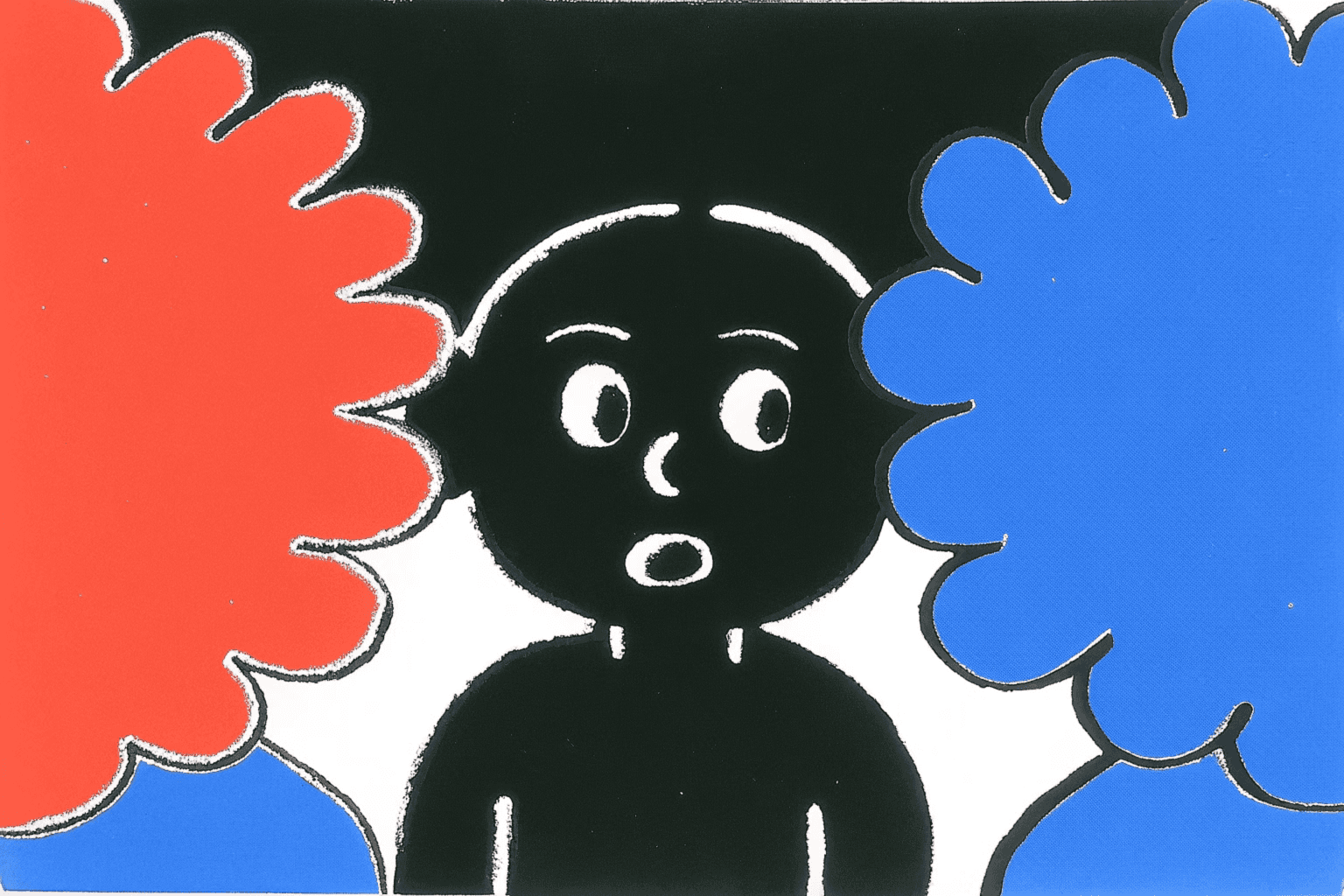Why are young people so politically rigid now? Let’s dive into the power of staying open-minded in your teens, but also always.
By Rodrigo Garza
Nov 5, 2024
The youth has always driven societal change and had strong ideals, I get that, I was a kid too, drawing the Anarchy "A" on everything I owned and attending Antifa marches in the early 2000's. But now it feels like somewhere along the way, political parties became the most common badge we wear before we even know what we really stand for. Today, more young people than ever are diving headfirst into politics—not just as a casual interest or a civic duty, but as a core piece of their identity. A Pew Research Center study found that 61% of teens aged 13 to 17 pay attention to politics, and, by 20, many are already setting down their ideological flags for either party with such intensity, you’d think they're boomers. I find it odd, isn't this early passion for politics locking us into beliefs too early? and what's more odd, is that now it seems like the choice is between Republican or Democrat.
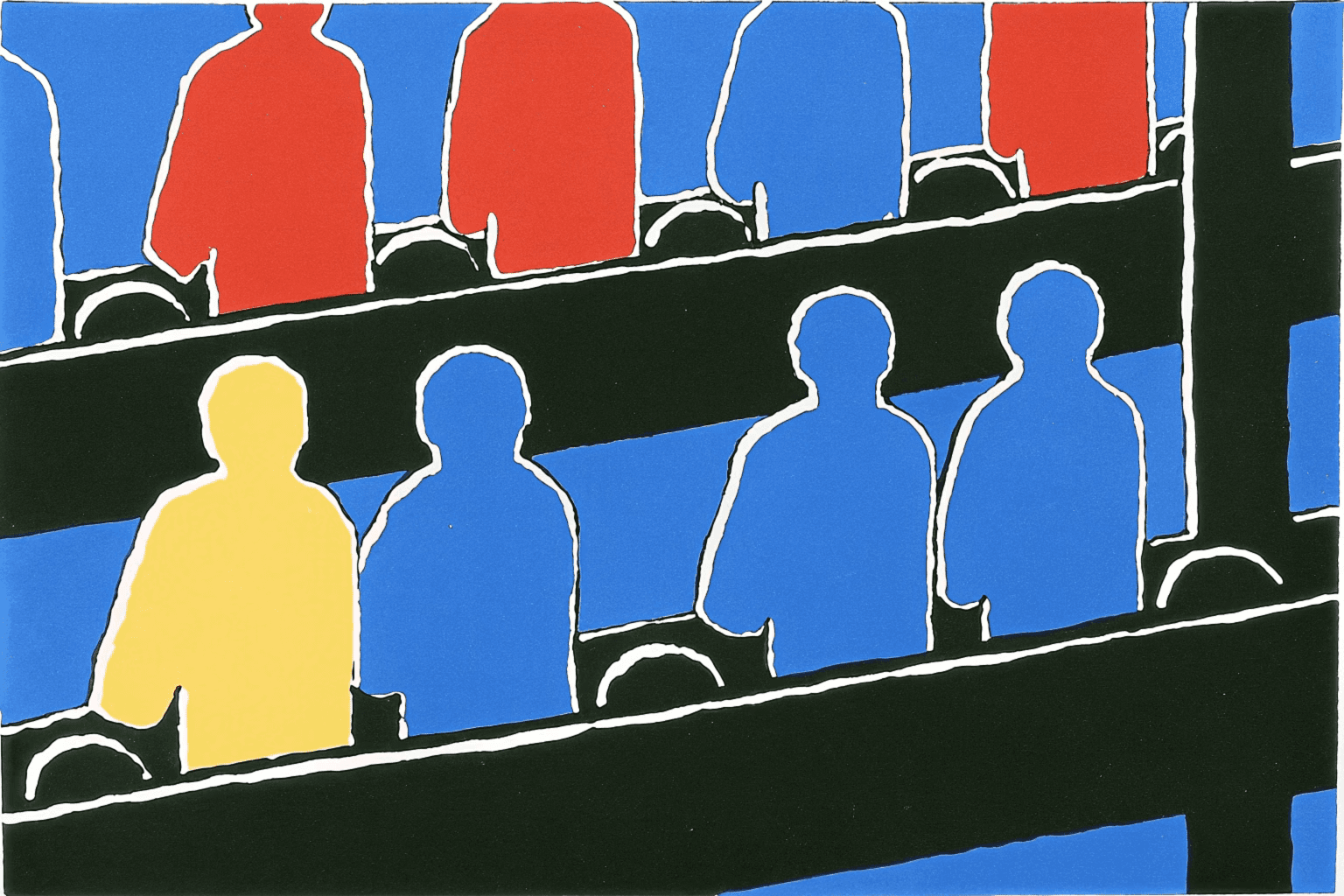
There's obviously an appeal about discovering political passion young. It’s when you see that the world isn’t as simple as you were told. All of a sudden, you’re filled with drive and purpose, a fire to not only pick a side but to fucking let everyone know, and in turn, gain social currency and be the "most" among your buddies. In today’s hyper-digital culture, where activism and tribalism overlap, I think we have to ask—does setting our beliefs in stone at such a young age really serve us in the long run? Or does it sideline the crucial experimentation phase of early adulthood?
Today’s kids are more politically aware, it seems, than previous generations, we're hyper connected and hyper informed now (more quantity than quality though). But movements that once stood as unique and distinct and built out a healthy grayscale—like the Yippies, Black Panthers, or even libertarians—have largely been simplified into broader categories, absorbed by overarching labels like "Woke" or "MAGA." This merging of ideologies into simplified camps strips away much of the nuance, reducing the spectrum of political identity to a few dominant narratives.
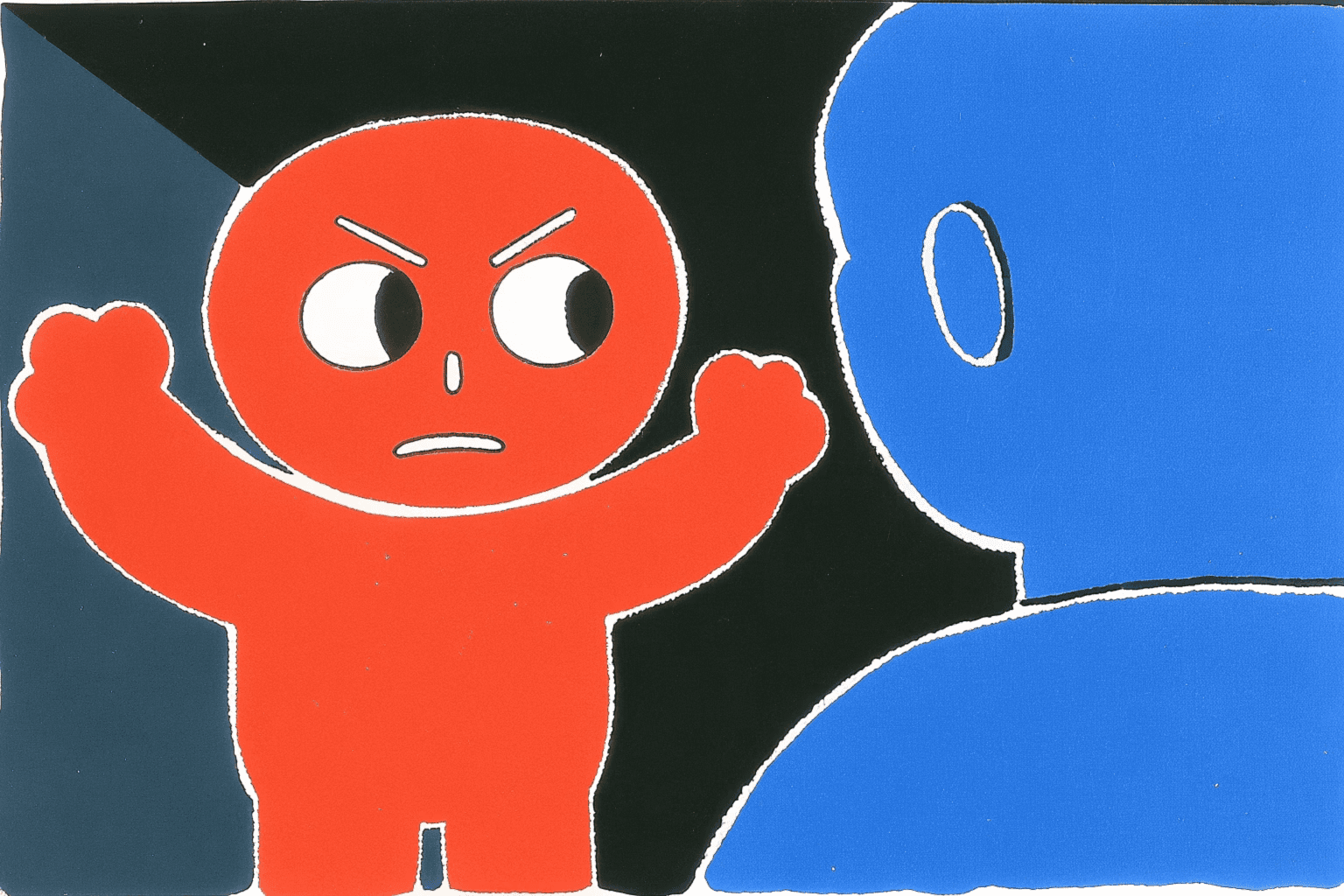
Gen Z, and even younger Millennials, wake up to the world’s news with a nice doomscrolling sesh; every issue appears as an urgent crisis framed in moral absolutes. Social media amplifies these stakes, and every new TikTok feels like another call to action. It’s no wonder that issues like racial inequality, climate change, LGBTQ+ rights, and nationalism draw fierce dedication. And there’s no question that we need this kind of passion—history shows that real change isn’t driven by complacency.
But as Isabel Allende said, 'There is no light without shadow'. The flipside of being politically engaged so young is ideological rigidity. The current landscape funnels young people into two major camps, leaving little room for diversity of thought. Political beliefs, like most things in life, benefit from room to breathe, evolve, even bend. When we embrace hardline beliefs before we’ve had a chance to explore alternatives, That was once considered an "old people" trait—trying to change Nana's friends' views in the nursing home about "The Mexicans" was a lost cause, but now it's the kids?
Revolutions need adaptability, an openness to change as the movement itself grows. When you lock yourself into an ideology early, you risk leaving yourself no way out, no room for evolution. Ironically, the same rigidity that once fueled your activism may later become a barrier to staying relevant in a constantly shifting landscape.
Today’s cultural landscape, particularly online, exacerbates this problem. The consolidation of social issues into major party lines—like environmentalism, LGBTQ+ rights, and anti-corporate stances being subsumed under 'Woke' politics—makes it harder for alternative views to find space. Similarly, nationalism, libertarianism, populist rhetoric, and resistance to these causes have largely been absorbed by the MAGA or conservative side.
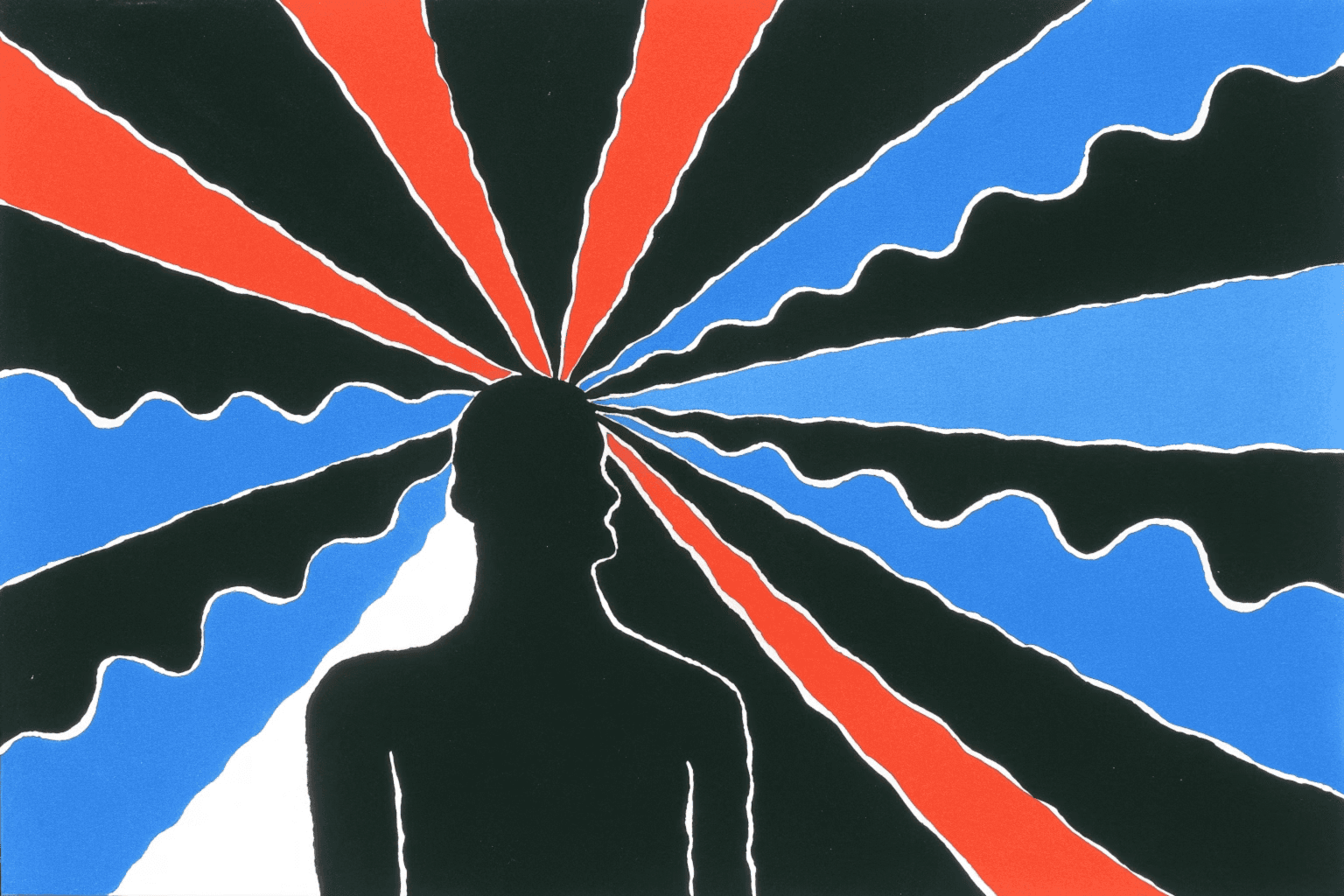
Social media platforms create echo chambers that filter content to align with our existing views. This fosters hyper-simplified polarization, We've seen this again and again, in documentaries like 'The Social Dilemma' and critiques of digital culture, but it feels inevitable, or so it seems. The echo chamber effect makes it easy to fall into confirmation bias, reinforcing our beliefs without offering much reason to question them. These platforms subtly discourage experimentation, turning political identity into something that must be static to stay valid. But loyalty to an idea should never come at the cost of curiosity, and when ideological adherence begins to feel obligatory, personal growth takes a back seat.
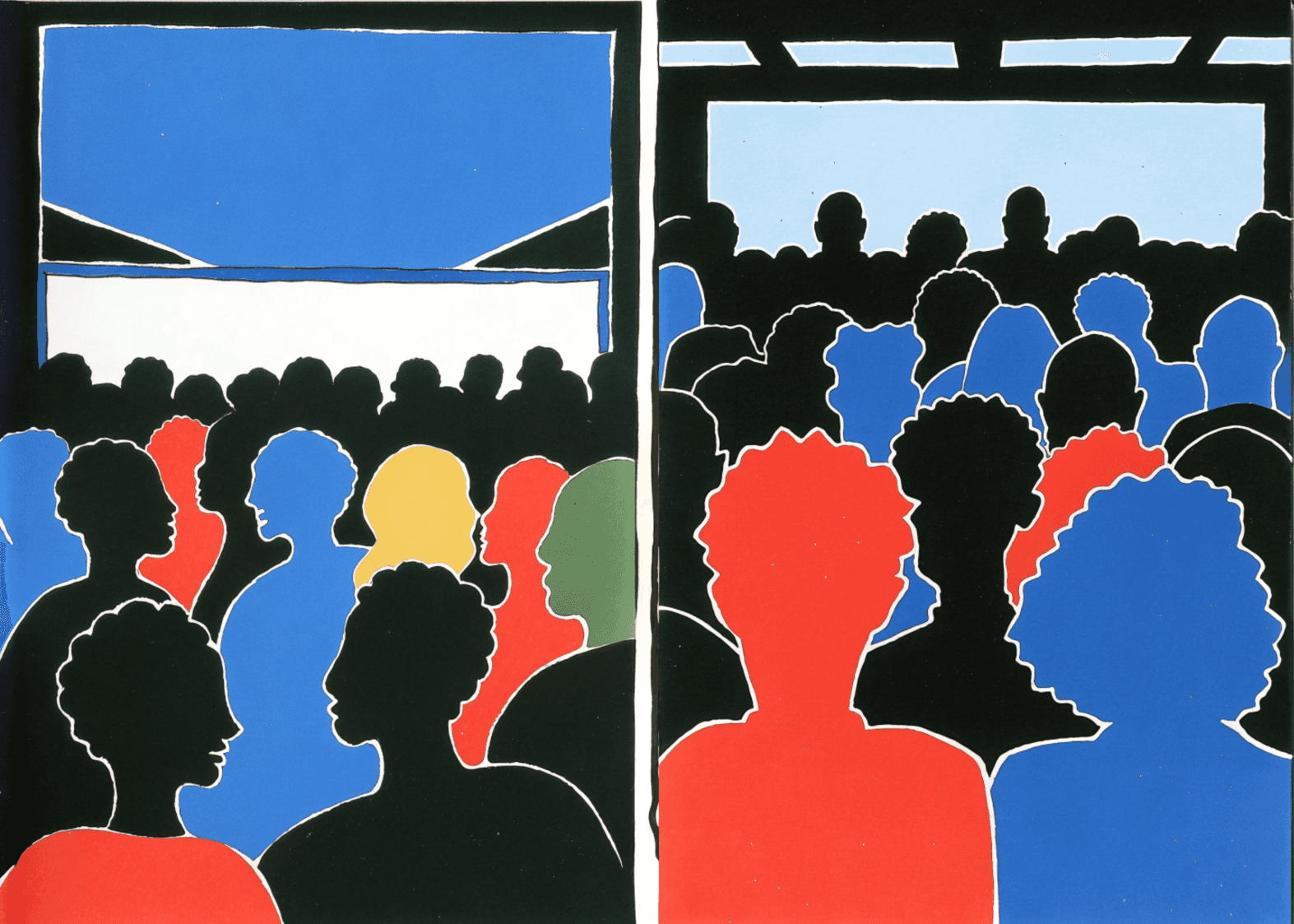
Are We Forgetting How to Change?
There’s a psychological concept called “identity foreclosure,” where a person adopts an identity too quickly, without exploring alternatives. It’s like deciding you’re a lifelong punk rocker at 15, with no room to explore jazz or electronic music later, we all have that buddy that's still trying to hijack the Aux cord at parties to play NOFX, at 37, right?. But, In politics, this can be especially limiting. When you label yourself a certain type of political thinker too early, you risk shutting the door on the very phase of exploration that’s essential to personal growth.
Consider the giants of social change: Malcolm X, Angela Davis, even Martin Luther King Jr. Their impact didn’t come from rigid beliefs but from an openness to evolve. Malcolm X’s journey from a separatist philosophy to an inclusive vision of racial unity is a testament to the power of ideological growth. If these leaders had locked into their views at 20, history might look very different. When we treat evolution as a weakness, we miss the fact that adaptability is often the driving force behind lasting impact.
The internet, a place that offers limitless perspectives, often traps us in bubbles of our own beliefs. What does it mean to have unlimited information at your fingertips if algorithms only serve you what you already agree with? Social media creates a paradox: the same platforms that expose us to global news and perspectives also narrow our worldview, encouraging a rigid loyalty to fixed beliefs rather than an evolving understanding.
It’s here that young people are being encouraged to treat their political identity like a brand, something that must stay static to stay valid. When your identity is public and politicized, admitting you were wrong feels less like growth and more like scandal. But the real mark of adulthood is recognizing that you may have been wrong—that it’s natural, and even necessary, to reassess the world around you. Sticking to rigid beliefs for the sake of identity can become a self-imposed form of stagnation.
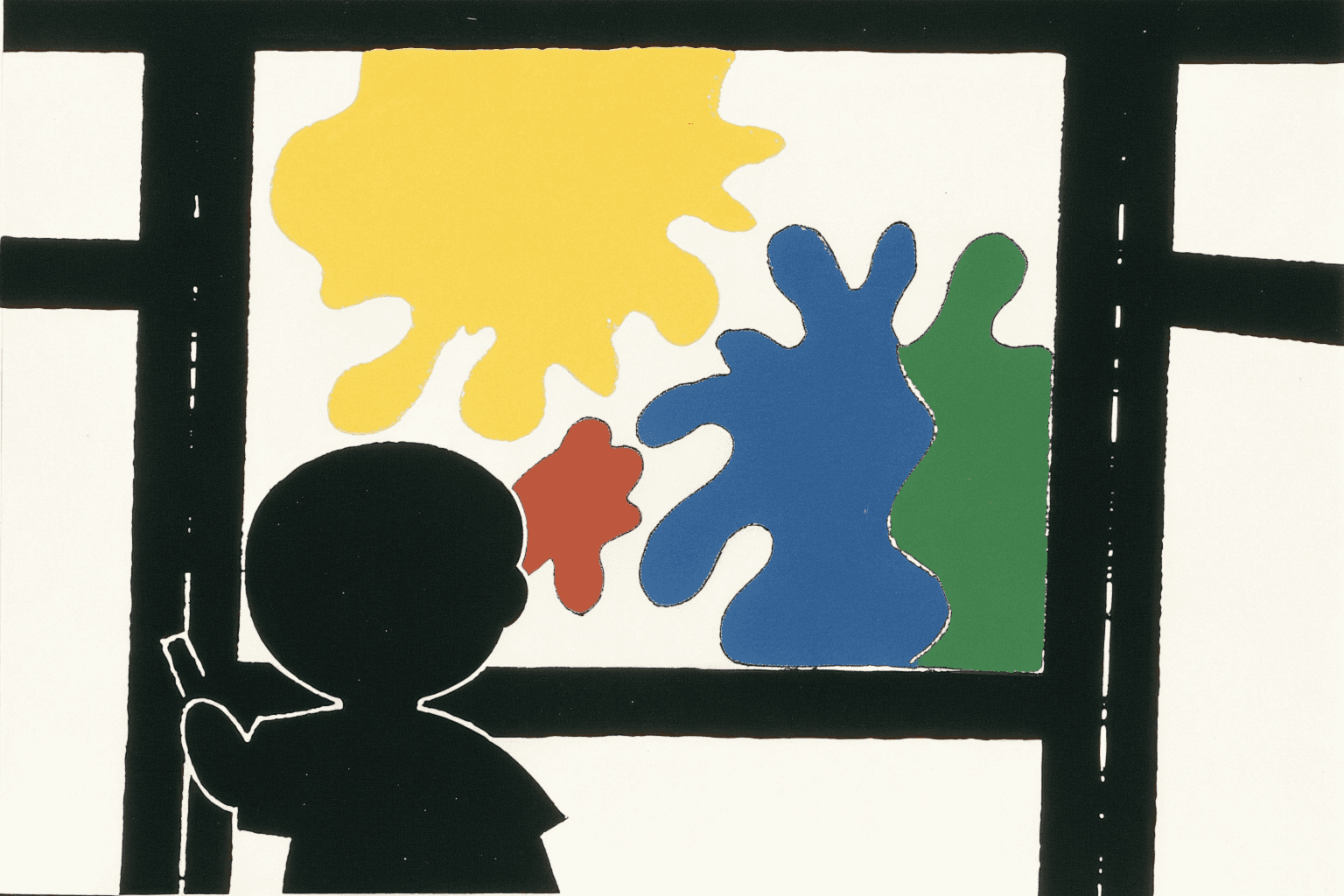
Experimentation is really really important.
Maybe the problem is that we’ve confused passion with permanence. We’ve told young people to be loud about their beliefs, but we haven’t encouraged them to leave room for change. Experimentation isn’t a luxury; it’s how real understanding is born. When people are willing to bend, listen, and adapt, they find new ways to approach issues that, by nature, are ever-changing, especially E.U. or U.S. politics. If you’re rigid at 16, you might be painfully out of touch by 40, disconnected from the very world you set out to change.
If everyone staked their claim on unyielding ideologies from the start, where would we find the bridge-builders—the people willing to connect disparate perspectives? Experimentation fosters compromise; it’s an antidote to dogma. And without it, we’re left with a landscape where every discussion is a battlefield, and changing your mind is seen as weakness.

Rethinking Political Commitment in Your Late Teens
Passion at 20 is powerful—it’s needed, it’s important. But passion doesn’t have to mean rigidity. We should encourage young people to care, to fight fiercely for the causes that move them, but also to see this as the beginning of a long journey. In a world that thrives on labels and absolutes, the most rebellious act is to embrace flexibility. Real power lies not in standing firm at all costs but in knowing when to bend, when to pivot, and when to reassess.
So yes, pick your cause, wear it with pride, vote, but leave a little willingness to change. Real experimentation isn’t about finding the right answer once; it’s about being willing to ask the right questions, over and over, for a lifetime. In the end, that’s the kind of political identity that isn’t just loud—it’s resilient.
So vote Right, Vote Left, or don't vote, but know this, no candidate gives a fuck about you, not really, they want to WIN, for them. So, how about not losing family and friends over this shit? Woke lady, make a catholic friend, and MAGA dude, have a trans buddy, you'll only grow.
